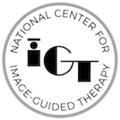Difference between revisions of "2008 June Workshop Germany"
(→Day 1) |
|||
| Line 85: | Line 85: | ||
# Danielle Pace | # Danielle Pace | ||
# Sebastian Barre | # Sebastian Barre | ||
| − | # Julien | + | # Julien Jomier |
=Local Host= | =Local Host= | ||
Revision as of 18:51, 24 March 2008
Home < 2008 June Workshop Germany- Still tentative, approval pending
- When: June 16/17
- Where: Germany, specific location TBD
Venue and Logistics
The workshop will take place at the IHK Akademie Westerham on June the 16th and 17th, 2008 which is located south-east of Munich. Currently our plan is to arrive already on Sunday the 15th such that the workshop can start on time on Monday morning.
All participants will receive a letter of invitation from the DFG. Besides the program the letter will contain a form that need to be filled out and sent back to the DFG in order to get reimbursed for travel and accommodation costs.
Introduction
This curriculum is intended as an introduction for scientists with engineering background who are considering using the NA-MIC kit as their software platform for research. The NA-MIC kit consists of free open source software without restrictions on use and without a give-back requirement. The NA-MIC kit is suited for academic or commercial activities.
The curriculum provides an overview over the technologies, toolkits and applications which are available in the NA-MIC kit. It is a hands-on curriculum and will require participants to attend with a suitable laptop, preloaded with software and sample data.
Prerequisites
- This workshop is a hands-on workshop!
- A working knowledge of C++ is a prerequisite for benefiting from the full curriculum.
- You will be expected bring a computer with you with a minimum of 1 GB of RAM and a dedicated graphic accelerator with 128 MB of on board graphic memory. The NA-MIC kit is running on Linux, Windows XP and Mac OSX.
Application
Due to the fact that the workshop is mainly supported by the DFG only applications of German citizens can be taken into account. Multiple applications from single institutes are possible but the primary intention is to achieve a wide spread distribution over many institutes. Finally each person attending will have to pay xxx for participating.
The applications should include:
- Cover letter
- Field of reaserch/work
- Previous experiences with the NA-MIC kit
- Expectations of the participant
- Currivulum vitae
Schedule
- March - Web site, Call for application
- April - announcement in Nassir's talk
- April 20 - deadline for application, selection Workshop
- May 5 - DFG deadline for list of participants
- Workshop: (arrival on the 15th) 16 and 17
Requirement
Program
- Engineering methodology:
- Extreme programming
- What is a software engineering methodology, do I need one?
- The components of the NA-MIC kit software engineering tools: CMAKE, CTEST, CPACK, Dashboards
Day 1
- Slicer 3 introduction & capabilities (Pieper, Pujol)
Day 2
- Slicer 3 IGT capabilities
- Workflow engine
- Real-time behavior
- I/O to trackers, devices, and scanners
- Synchronization
- Output to alternative display devices, e.g. HMDs
- Slicer demon
- Lego robot tutorial as an example of robot control
- Registration in the Slicer environment
- Plug-ins for Slicer 3
- Introduction: Plug-ins as a way to interface external programs
- How-to make a hello world plug-in
Prerequisites: Hardware and Software
Faculty
- Ron Kikinis
- Steve Pieper
- Noby Hata
- Sonia Pujol
- Danielle Pace
- Sebastian Barre
- Julien Jomier
Local Host
- Nassir Navab
Planning meeting
T-con
Phone: (001) 1-218-936-1100, PIN: 23869 #



